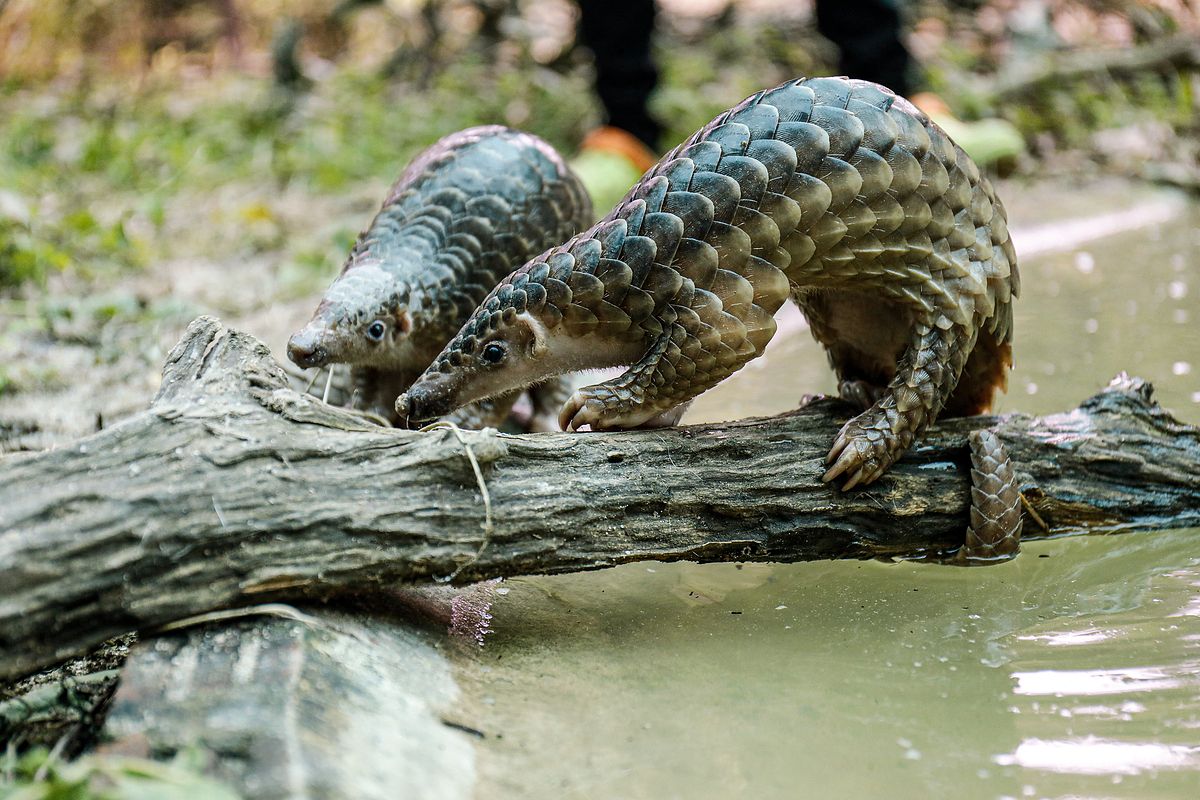The move has given conservationists hope in the fight to save the world's most-trafficked animal.
The Guardian reports that pangolin scales have been removed from an official list of ingredients approved by the Chinese government for use in traditional medicine. This comes after a decision last week by the State Forestry and Grassland Administration to raise the protected status of pangolins to the agency's highest level in China.
An estimated 200,000 pangolins are consumed annually in Asia, while over 130 tons of scales, live and dead animals were uncovered in trafficking busts in the region last year.
According to the news source, all eight species of pangolin are protected under international law, while three of the four endemic to Asia are listed as critically endangered by the International Union for Conservation of Nature (IUCN). This includes the Chinese pangolin, which is functionally extinct.
Zhao Jinfeng, secretary general of the China Biodiversity Conservation and Green Development Foundation, told the paper: "I am very encouraged. Our continuous efforts for several years have not been in vain."
"We highly applaud this announcement, made in recognition of the need to protect critically endangered pangolins," Steve Blake, chief representative of the NGO WildAid in Beijing, shared with The Guardian. "Along with upgrading pangolins to a national level 1 protected species, these two actions are crucial to help curb illegal trade."
Pangolin trafficking remains an immense problem in Vietnam as well. Last year, Vietnam had the largest volume of seized pangolin scales in the world, overtaking Nigeria. Huge shipments of pangolin parts have been discovered transiting from Africa to Vietnam for consumption both in the domestic market and for further shipment to China.
The pangolin decisions in China follow the country's announcement earlier this year to ban the trade and consumption of wildlife in response to the coronavirus pandemic, which is believed to have started at a market in Wuhan which sold live wild animals.
Exact details of the ban are still being worked out, but the move has been hailed as a major step both for wildlife conservation and for the prevention of future pandemics.
[Photo via USAID Asia's Flickr account]














